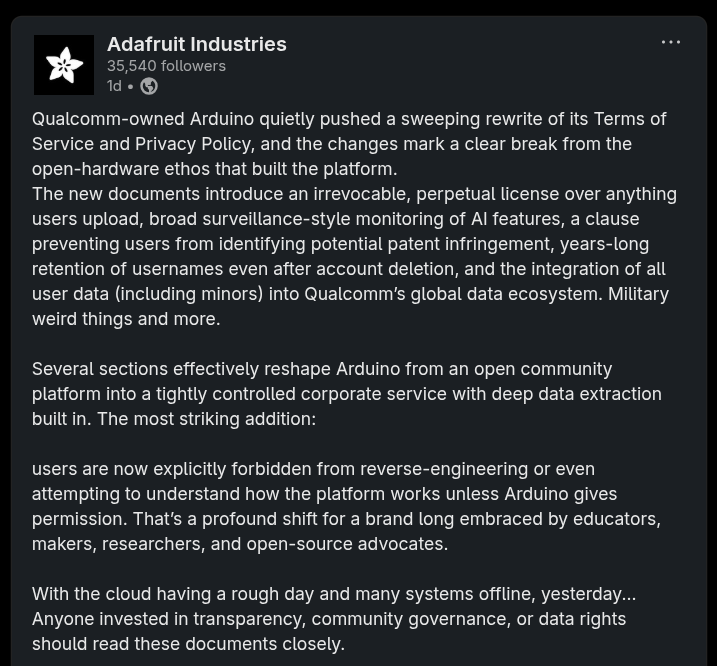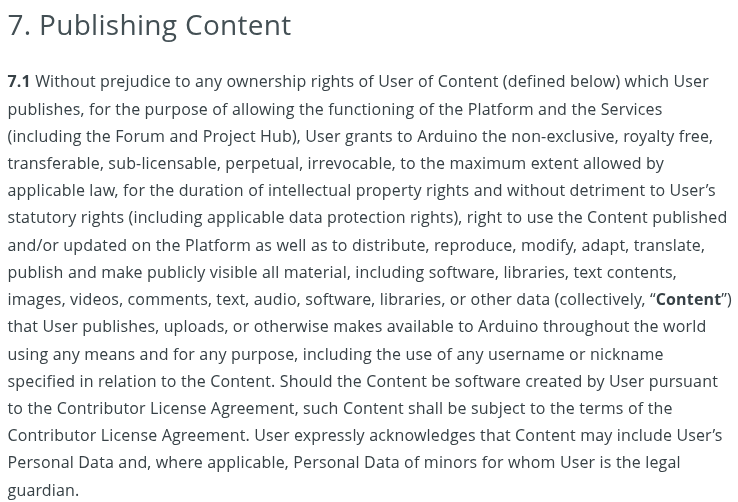When Qualcomm announced its acquisition of Arduino in October 2025, the tinkerer and maker community watched nervously. Large corporate acquisitions rarely end well for open platforms after all, and enshittification is something that often follows.
And now, what’s followed is unsettling. Adafruit Industries, makers of popular development boards and a respected voice in the open hardware space, have sounded the alarm.
This Looks Concerning

Qualcomm has quietly made some massive changes to Arduino’s Terms of Service and Privacy Policy, marking a clear departure from the platform’s founding principles.
According to Adafruit, the new policies introduce sweeping user-license provisions, broaden data collection (particularly around AI usage), and embed long-term account data retention, all while integrating user information into Qualcomm’s broader data ecosystem.
Section 7.1 grants Arduino a perpetual, irrevocable license over anything you upload. Your code, projects, forum posts, and comments all fall under this. This remains in effect even after you delete your account. Arduino retains rights to your content indefinitely.
The license is also royalty-free and sublicensable. Arduino can use your content however they want, distribute it, modify it, and even sublicense it to others.

The terms further state that users are not allowed to reverse engineer or attempt to understand how the platform works unless Arduino gives permission. Adafruit argues that this contradicts the values that made Arduino attractive to educators, researchers, and hobbyists.
The Privacy Policy states Arduino is wholly owned by Qualcomm Technologies, Inc. User data, including from minors, flows to other Qualcomm Group companies.
While these policy changes have raised eyebrows, Qualcomm and Arduino maintain that the acquisition will not alter the core spirit of the platform. They also state that existing Arduino boards built on non-Qualcomm microcontrollers will continue to be supported.
Nonetheless, there are good reasons to take Adafruit’s concerns seriously. The updated Terms of Service and Privacy Policy do contain sweeping language that feels out of place for a platform built on openness and transparency. The community is entitled to scrutinize these changes closely.
At the same time, the hardware side of Arduino doesn’t seem to have changed too much as of now, so there’s that too. Going forward, how these two organizations respond to criticisms such as this should paint a more clear picture of Arduino’s future at its new home.

